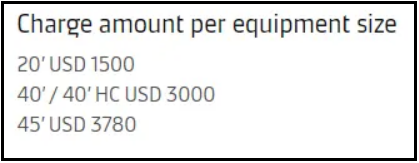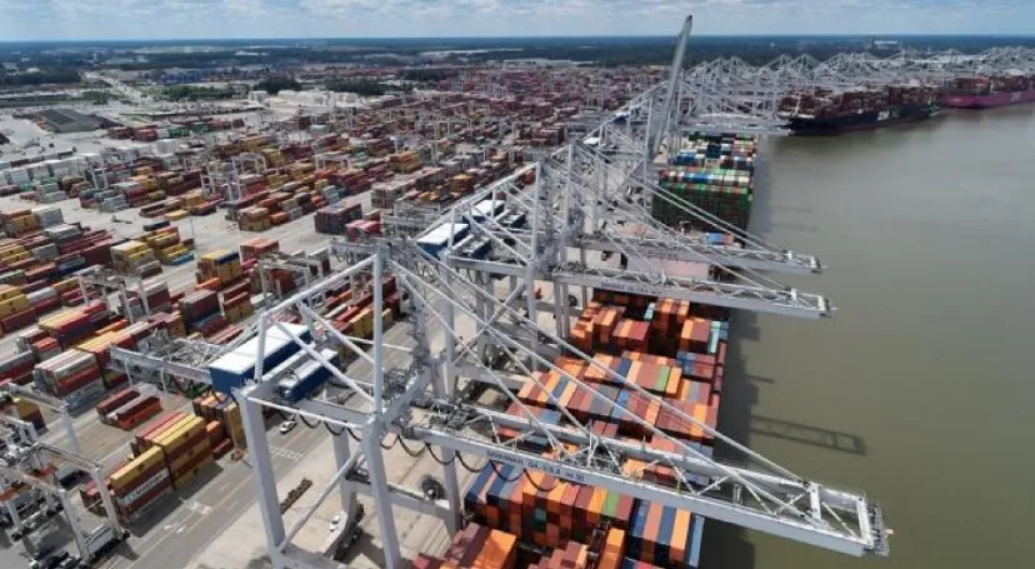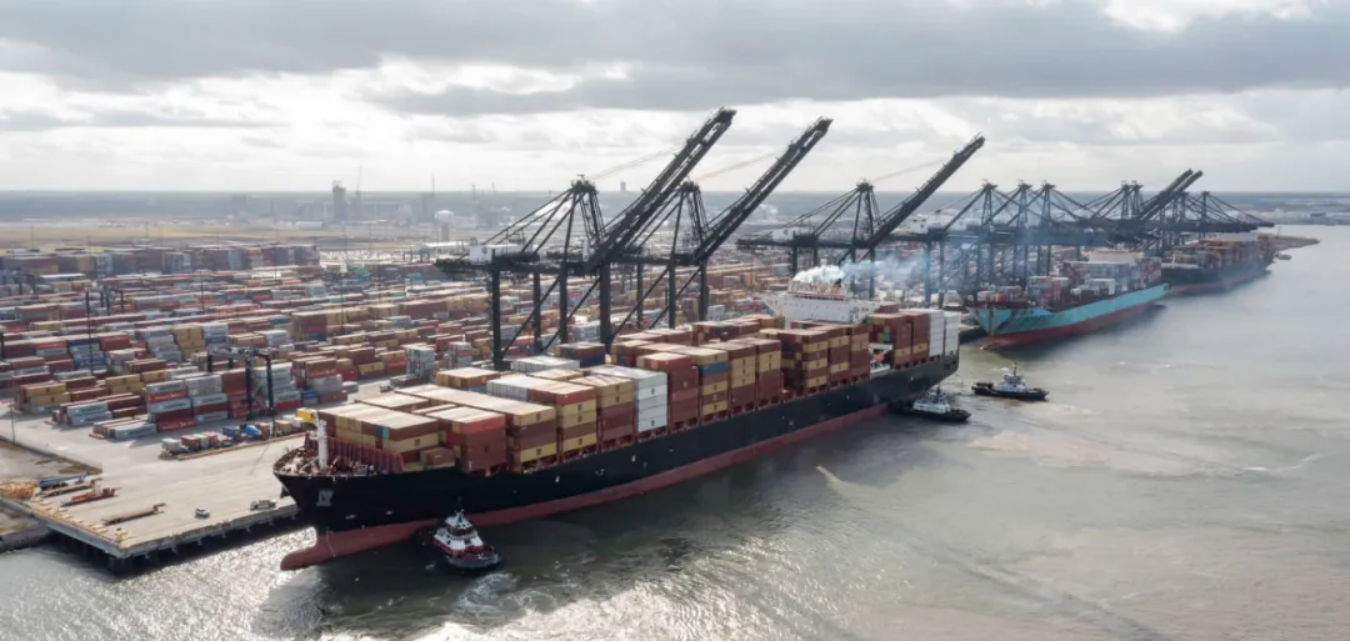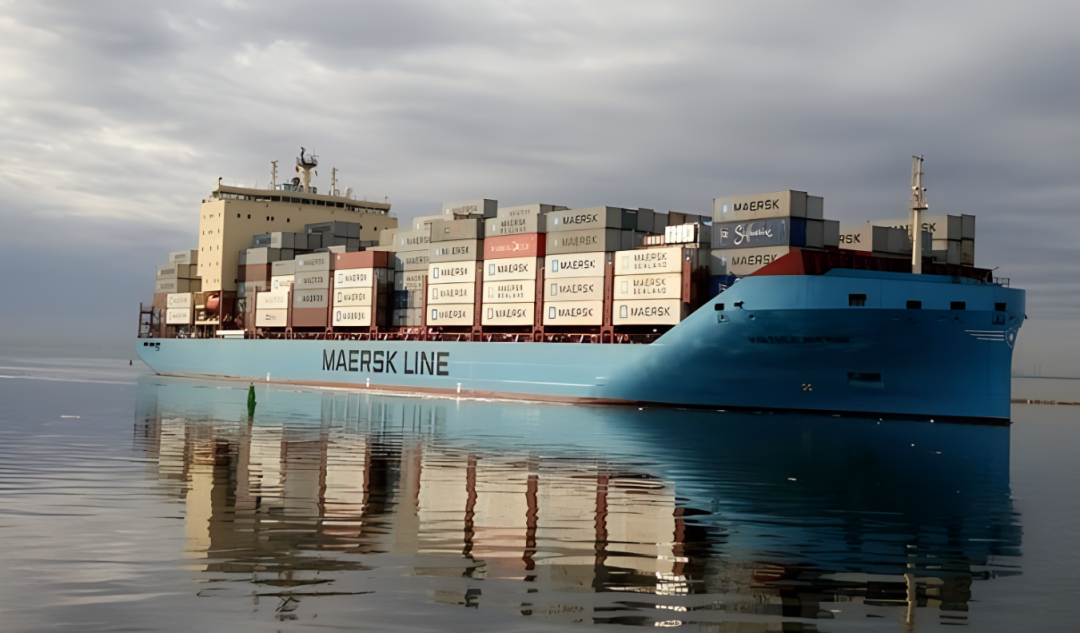According to the latest update on Maersk's official website, Maersk is closely monitoring the ongoing negotiations between the International Longshoremen's Association (ILA) and the United States Maritime Alliance (USMX). Due to potential labor disruptions, Maersk will implement a local port disruption surcharge on all cargo to and from U.S. East Coast and Gulf Coast terminals, effective October 21, 2024 (based on the pricing calculation date). The details are as follows:

This surcharge is subject to approval by China's export control authorities. The surcharge may be imposed as early as October 21, 2024, depending on the impact of supply chain disruptions. Maersk stated that the surcharge is necessary to offset the higher operational costs resulting from service interruptions, ensuring the sustainability of services and continued support for supply chain needs.

Additionally, CMA CGM, Hapag-Lloyd, and MSC have announced surcharges on outbound and inbound cargo, ranging from $800 per standard container to $3,000 for 40-foot and 45-foot containers.
[Multiple Shipping Lines Warn: Speed Up Customs Clearance and Pick Up Goods Promptly]
The ILA agreement affects ports along the entire U.S. East Coast and Gulf Coast, stretching from Maine to Texas, including major hubs such as Boston, New York/New Jersey, Philadelphia, Baltimore, Charleston, Savannah, Miami, New Orleans, and Houston. With just one week left before a potential dockworker strike, truck lines at U.S. East Coast ports are getting longer, as consignees prepare for a possible shutdown at the end of the month.

Shipping companies are advising customers to pick up goods from U.S. East Coast ports by September 30.
ONE is encouraging shippers to pick up goods by September 30 and warning that refrigerated containers may not be monitored during the strike. Additionally, ONE will cancel port calls on five routes to the U.S. East Coast in the coming days and discharge cargo at other ports to ensure delivery before operations are suspended. ONE strongly recommends that cargo be picked up at alternative ports before October 1, 2024. For exports, ONE will continue to accept dry cargo bookings but will suspend all bookings for refrigerated cargo from October 1 onwards.
Maersk similarly advises customers with import operations to expedite paperwork and customs clearance and pick up their goods promptly, as ports will be inaccessible during any strike. Maersk stated that vessels destined for ILA-affected ports are expected to temporarily anchor. "We will determine port calls based on daily assessments and make adjustments as necessary. We are considering various options for affected services and ports, aiming to minimize delays and maintain normal schedules."
Hapag-Lloyd has also provided similar advice to its customers, urging them to speed up customs clearance and retrieve their goods before the strike.
Official talks between the International Longshoremen's Association (ILA) and the United States Maritime Alliance (USMX) have not yet resumed. In a statement, the USMX said, "Despite multiple attempts by the USMX to engage with the ILA and resume negotiations, we have been unable to arrange a meeting to continue discussions on a new master contract. We are ready to negotiate at any time, but both parties must sit down to reach an agreement. Currently, there is no indication that the ILA is interested in negotiating."
An analyst at Oxford Economics noted that the daily cost of the strike exceeds $1 billion and pointed out that a two-week strike would create a ripple effect that could disrupt the supply chain until 2025.

Last
Multiple Ports Restrict Navigation and Terminals Shut Down
As Hurricane Milton approaches Florida, at least one oil and gas platform in the Gulf of Mexico was shut down on Monday, and Flori

Next
Maersk Announces New Surcharges! Effective October 1
Recently, Maersk's official website released a series of announcements regarding peak season surcharge adjustments, effective from
